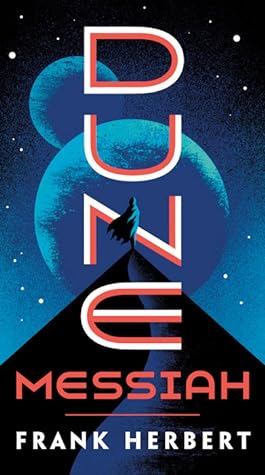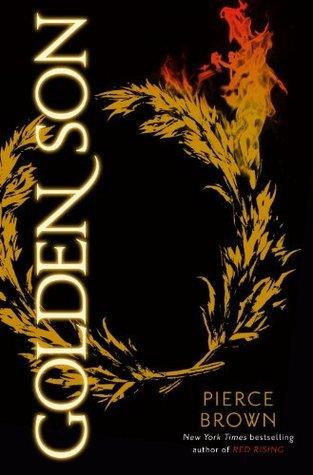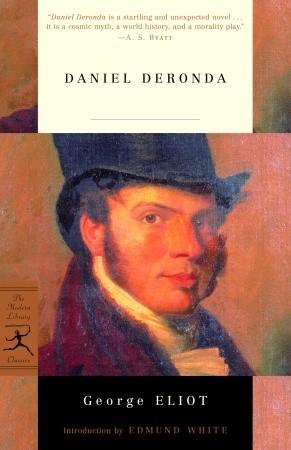Dune Messiah by Frank Herbert Book Summary
Explore our comprehensive summary of "Dune Messiah" by Frank Herbert, featuring key insights and an in-depth review. Discover the intricate themes, character developments, and the impact of this iconic sequel in the Dune saga. Perfect for fans and newcomers alike!
Dune Messiah Book Summary
Frank Herbert's Dune Messiah delves deeper into the complex universe of Arrakis, exploring the consequences of power and prophecy. This sequel to Dune offers a gripping narrative filled with political intrigue, betrayal, and philosophical depth. In this summary and review, we uncover the key insights that make the novel a thought-provoking continuation of the epic saga, revealing how Herbert masterfully challenges the notions of destiny and leadership.
Discover the essential themes and insights in Children of Dune Book Summary, Review & Key Insights to deepen your understanding and enrich your reading experience of this sci-fi masterpiece.
Dune Messiah by Frank Herbert - Introduction
You know what totally caught me off guard in Dune Messiah? It’s how Frank Herbert flips the whole idea of a heroic journey on its head. I mean, I went in expecting a straightforward epic like the first Dune—you know, the classic rise-to-power story—but instead, it’s this deep, almost unsettling look at the costs of absolute power and the weight of destiny. I had no idea a sci-fi novel could make me question how we view leadership and sacrifice so deeply.
I picked up Dune Messiah mostly because I loved the original Dune and wanted to see where Herbert would take Paul Atreides next. Plus, I’d heard it’s a cornerstone in Science Fiction Fantasy and Speculative Fiction, blending elements of Space Opera with rich philosophical themes. At just 337 pages, it’s not a massive time commitment—about 8-10 hours if you listen to the audiobook—but it packs a punch.
If you’re someone who enjoys stories that make you think beyond the usual good vs. evil, or if you like your classics with a side of complex characters and moral ambiguity, this book is for you. It’s perfect for anyone who loves novels that challenge your perspective while still delivering that immersive sci-fi world we all crave.
Honestly, if you want a book that stays with you long after you finish it, Dune Messiah might just surprise you the way it surprised me.
What is Dune Messiah About?

"Dune Messiah" continues the saga of Paul Atreides, exploring the complexities of power, prophecy, and the consequences of his rise as a ruler. The main message highlights the burdens of leadership and the often-unforeseen repercussions of one's choices, emphasizing that true vision can lead to both greatness and suffering. Key concepts include the struggle between free will and destiny, the ethical dilemmas of wielding power, and the intricate dynamics of religion and politics as they shape human behavior and societal evolution.
About Book Author - Frank Herbert
Ladies and gentlemen, it’s my pleasure to introduce Frank Herbert, a visionary whose journey to writing Dune Messiah is as captivating as the story itself. Frank didn’t start out as a novelist; he was a journalist and a photographer, which honed his keen observation of human nature and society—elements that deeply resonate in his works. After the monumental success of Dune, he felt compelled to explore the consequences of power and leadership in its sequel, Dune Messiah.
What’s interesting about Frank Herbert is that he once spent time studying ecology and the intricate balance of ecosystems, which profoundly influenced his world-building in the Dune universe. His expertise in understanding complex systems makes him uniquely qualified to delve into themes of politics, religion, and human psychology. Beyond Dune and Dune Messiah, his other notable works, like God Emperor of Dune and The Dosadi Experiment, showcase his ability to intertwine philosophical questions with thrilling narratives. Join me in welcoming Frank Herbert!
More Books To Find
Dune Messiah - Book Overview
It's essentially about the consequences of power and the burden of leadership. Paul Atreides, who became this powerful ruler, grapples with the implications of his rise to power and the violent jihad that followed. It’s like being handed the keys to a kingdom but realizing you might have unleashed chaos instead of order.
Frank Herbert wrote it not just as a sequel to Dune, but to explore the darker side of messianic figures. He wanted to challenge the idea of a hero and show how even the best intentions can lead to devastating outcomes. It’s a cautionary tale about how power can corrupt and how the expectations of others can weigh heavily on a leader.
What sets it apart from other sci-fi is its deep dive into philosophy and psychology. While many sci-fi books focus on technology or adventure, Dune Messiah is more about the internal struggles of its characters and the moral dilemmas they face. It’s introspective and thought-provoking, almost like a philosophical treatise disguised as a sci-fi novel.
One story that really stuck with me is when Paul realizes that his prescient visions, which once seemed like a gift, are actually a curse. He sees the paths of potential futures, but they all lead to suffering. It’s a powerful moment that encapsulates the theme of unintended consequences and the heavy price of leadership.
Key Insights of Dune Messiah
Dune Messiah delves into the complexities of power and its consequences. Paul Atreides, now Emperor, grapples with the heavy burden of leadership and the prophetic visions that haunt him.
The theme of prescience is pivotal; Paul's ability to foresee events creates a paradox where he feels trapped by his own visions, questioning whether he can alter the future or is doomed to follow a predetermined path. This struggle highlights the limitations of foresight and the weight of responsibility that comes with it.
Another key insight is the exploration of human nature and the manipulation of followers. Paul's rise to power, fueled by a religious fervor, raises questions about the morality of using faith as a tool for control. The Fremen, initially seen as liberators, become an extension of Paul's will, illustrating how revolutionary ideals can morph into oppressive regimes.
The character of Chani serves as a poignant reminder of personal sacrifice. Her role emphasizes the emotional toll of political machinations and the impact of leadership on personal relationships.
Finally, the novel critiques the messianic narrative itself. Paul’s reluctance to embrace the role of a savior underscores the dangers of idolizing leaders and the potential for disillusionment. Through these insights, Herbert crafts a narrative that invites reflection on the nature of power, the ethics of leadership, and the complexities of human ambition.
Who Should Read This Book
"Dune Messiah" is a must-read for fans of science fiction and those intrigued by complex narratives that explore themes of power, religion, and human nature. Readers who appreciated the intricate world-building and philosophical depth of the original "Dune" will find this sequel equally compelling. It appeals to those interested in the consequences of leadership and the burdens of prophecy, as well as fans of character-driven stories. Additionally, it’s ideal for anyone looking to engage with thought-provoking ideas that challenge societal norms and personal beliefs, making it a rich experience for both casual readers and literary enthusiasts.
Read If You Are
- a fan of epic science fiction with deep philosophical themes
- interested in the complexities of power, leadership, and morality
- seeking a thought-provoking sequel that expands on the original Dune saga
Skip If You Are
- Not a fan of slow-paced, introspective narratives that focus on philosophical themes.
- Looking for a straightforward, action-driven science fiction story without complex character development.
- Uninterested in exploring themes of power, morality, and the consequences of leadership.
Important Takeaways from this Book
-
Practice Mindful Decision-Making: Take a moment before making any decision today. Reflect on the potential consequences and how they align with your long-term goals. This matters because it helps you avoid impulsive choices that could derail your progress. Consider keeping a journal to track your thoughts and decisions for better clarity.
-
Cultivate Empathy in Conversations: When engaging with others, actively listen and seek to understand their perspectives before responding. This practice fosters deeper connections and enhances your communication skills. It matters because empathy builds trust and strengthens relationships, vital for personal and professional growth.
-
Set Clear Intentions for Your Day: Each morning, write down three specific intentions you want to achieve by the end of the day. This action focuses your energy and prioritizes your tasks. It’s beneficial as it creates a sense of purpose and accomplishment. Ensure you keep your intentions realistic and attainable.
-
Embrace Change and Adaptability: Identify one area in your life where you resist change. Take a small step toward embracing it today, whether it’s trying a new routine or altering your perspective. This matters because adaptability is crucial for personal growth and resilience in an ever-evolving world. Remind yourself that discomfort often precedes growth.
-
Reflect on Your Values: Spend 10 minutes today contemplating what truly matters to you. Write down your core values and how they influence your decisions. This action matters because aligning your actions with your values leads to a more fulfilling life. Consider discussing your values with a trusted friend for deeper insights.
Book Review
I picked up "Dune Messiah" expecting another grand adventure in the Dune universe, filled with epic battles and intricate politics. Instead, I found a more introspective and philosophical sequel that delves deep into the consequences of power and prescience. While it wasn’t what I initially anticipated, I appreciated the depth it brought to Paul Atreides’ character.
One of the strengths of the book is Herbert’s writing style. His prose is both lyrical and dense, which creates a rich atmosphere. The way he explores the burden of leadership through Paul’s struggles is compelling, especially in scenes where Paul grapples with his role as a messiah. The character development is strong—Chani and Alia are particularly well-written, showcasing their complexities and vulnerabilities.
However, the pacing felt uneven at times. The first half dragged a bit with lengthy philosophical discussions that occasionally overshadowed the plot. I found myself wishing for more action, especially after the thrilling pace of the first book. The political intrigue is still present, but it often takes a backseat to introspection, which might not appeal to all readers.
Comparatively, it reminded me of "The Left Hand of Darkness" by Ursula K. Le Guin, which also tackles themes of power and identity but maintains a more engaging pace throughout.
Overall, I’d recommend "Dune Messiah" to those who appreciated the philosophical aspects of "Dune" and enjoy character-driven narratives. If you're looking for a fast-paced sci-fi adventure, you might want to temper your expectations. It’s a thought-provoking read, but not everyone will find it as thrilling as the original.
Final Thoughts
If I'm being honest, finishing Dune Messiah left me with a mix of admiration and contemplation. Herbert dives deep into the complexities of power, leadership, and the burdens that come with being a messianic figure. My overall takeaway is that the sequel challenges the glorified notions of heroism presented in the first book, making it a thought-provoking read.
I'd definitely recommend this if you're into philosophical sci-fi that explores the darker sides of destiny and sacrifice. However, skip this one if you're looking for a straightforward adventure or action-packed narrative; it’s much more introspective and slower-paced.
The thing that surprised me most was how Herbert tackled the consequences of Paul’s rise to power, showing that even a hero can become a tyrant. That moral complexity will stick with me for months. As for rereading, I think I'd prefer to recommend the full book rather than just the summary, as the depth of Herbert's writing deserves to be experienced firsthand.
Overall, my reading experience was enriching, albeit heavy at times. It’s a book that lingers in your mind, prompting you to reflect on the nature of leadership and the price of greatness.
Frequently Asked Questions
How long does it take to read Dune Messiah?
The average reading time for "Dune Messiah" by Frank Herbert, which has 337 pages, is approximately 8 to 10 hours, depending on your reading speed. Enjoy immersing yourself in this captivating sequel!
What makes "Dune Messiah" different from other books in this genre?
"Dune Messiah" stands out with its deep exploration of power, morality, and the consequences of prophecy. Unlike typical sci-fi, it delves into complex character psychology and political intrigue, challenging readers to reflect on leadership and destiny rather than just technology and adventure.
Who is the target audience for Dune Messiah
The target audience for "Dune Messiah" includes science fiction enthusiasts, fans of Frank Herbert's original "Dune" series, and readers interested in complex themes such as politics, religion, and human evolution. It's ideal for those who appreciate intricate storytelling and philosophical exploration within a futuristic setting.
Are there any criticisms or limitations of Dune Messiah
Critics of "Dune Messiah" often point to its slower pacing and complex narrative as limitations. Some readers feel it lacks the epic scope of its predecessor, "Dune," while others argue that its philosophical themes can be dense and challenging to fully grasp.
What is the main theme of Dune Messiah by Frank Herbert
The main theme of "Dune Messiah" revolves around the complexities of power, the burden of leadership, and the consequences of prophecy. It explores the moral dilemmas faced by Paul Atreides as he navigates the implications of his role as a messianic figure in a politically charged universe.
Tags:
Dune Messiah, Dune Messiah Book, Dune Messiah Book Rating, Dune Messiah Book Review, Dune Messiah Book Summary, Dune Messiah By Frank Herbert, Dune Messiah Description, Dune Messiah Short Summary, Frank Herbert

Michel Fisher
Michel Fisher is a passionate fiction enthusiast and book blogger who writes about emotional reads, character-driven stories, and contemporary romance authors that captivate hearts and minds.

Dune Messiah
Book Overview
Description
Book Two in the Magnificent Dune Chronicles--the Bestselling Science Fiction Adventure of All TimeDune Messiah continues the story of Paul Atreides, better known--and feared--as the man christened Muad'Dib. As Emperor of the Known Universe, he possesses more power than a single man was ever meant to wield. Worshipped as a religious icon by the fanatical Fremens, Paul faces the enmity of the political houses he displaced when he assumed the throne--and a conspiracy conducted within his own sphere of influence.And even as House Atreides begins to crumble around him from the machinations of his enemies, the true threat to Paul comes to his lover, Chani, and the unborn heir to his family's dynasty...Includes an introduction by Brian Herbert
Key Points
Power corrupts even the strongest leaders
Characters
Stilgar, Duncan Idaho, Scytale, Paul Atreides, Alia Atreides
Publisher
Ace Books
First Publish Date
10/28/69





